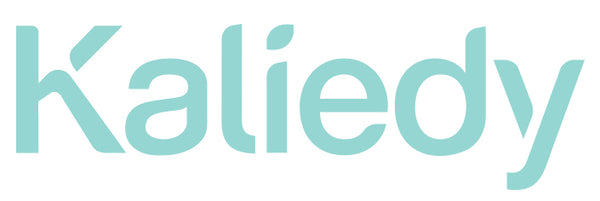In our previous post on ‘What You Need to Know About Reusable Nappies’, we discussed the convenient and environmentally friendly alternative to disposables. Reusable nappies aren't as time-consuming and messy as they seem, but parents will get tired of washing fabric nappies at some point. This is why you should potty train your child as soon as possible so you can eventually say goodbye to all types of nappies.A study from Sweden on potty training suggests that early toilet training can prevent gastrointestinal and urinary tract disorders in children, as potty training helps improve bowel and bladder control.
While potty training can be messy and difficult, making it fun for your little one can help them learn faster. In fact, author and potty training expert Jamie Glowacki explains that most children are probably ready to be potty trained earlier than you think — between 20 to 30 months — and your toddler can likely master the basics in a few days. While every child is different and will start at different ages, our guide here today will share tips on how to accomplish potty training in record time:
Put the "potty" in potty trainingWhile potty training can be messy and difficult, making it fun for your little one can help them learn faster. In fact, author and potty training expert Jamie Glowacki explains that most children are probably ready to be potty trained earlier than you think — between 20 to 30 months — and your toddler can likely master the basics in a few days. While every child is different and will start at different ages, our guide here today will share tips on how to accomplish potty training in record time:
Going to the potty after months of nappy use can be difficult for toddlers. It’s a new environment and a new way of doing their business, so allowing your child to familiarise themselves with the potty can help them feel more excited about this new habit. According to paediatricians, the fun can be as simple as letting your child pick out potty colours and designs or letting them watch videos and listen to songs near the potty. Reward potty successes and encourage attempts
You can’t rush your child if they are simply not ready. Let them take their time on the potty without a nappy on, then stay and wait with them while playing with a toy. You can even read a book like Everyone Poops to help educate your little one on common bodily functions. Remember that toilet training takes time and patience; sometimes, your little one will get up without having done anything. Don’t take this as a sign to discipline or scold your child, but compliment them for trying and let them know that they can try again later.
Follow a potty schedule
Working potty training into a schedule will make it easier for your child to slowly build the habit. Psychology professor Nancy Darling Ph.D. emphasises the importance of building habits for a child’s psychological and behavioural development, and potty training makes for great early practice. Giving your child potty time first thing in the morning, before leaving the house, or before naps or bedtime will help get your child used to a routine. Before you know it, they'll want to "go" on their own!
Practise good hygiene
Teaching your child to wash their hands after potty time is an important part of the learning process. Encouraging general cleanliness with children will also keep them healthier and germ-free in the long run. Colourful kid-friendly soap or a little music to accompany these practices will help your child enjoy the experience.
Ultimately, deciding when to potty train your child comes down to whether or not they are ready to let go of the nappy. Potty training isn’t something you can force or discipline a child into. Making the process an easy and enjoyable one for your child will be less straining on your patience. If your child starts expressing themselves when they need to “go”, showing interest in your bathroom or how to use the toilet, and is able to physically pull their clothes up and down, then it may just be the right time for them.
Ultimately, deciding when to potty train your child comes down to whether or not they are ready to let go of the nappy. Potty training isn’t something you can force or discipline a child into. Making the process an easy and enjoyable one for your child will be less straining on your patience. If your child starts expressing themselves when they need to “go”, showing interest in your bathroom or how to use the toilet, and is able to physically pull their clothes up and down, then it may just be the right time for them.
Written exclusively for Kaliedy.com by Angel Crestwood

